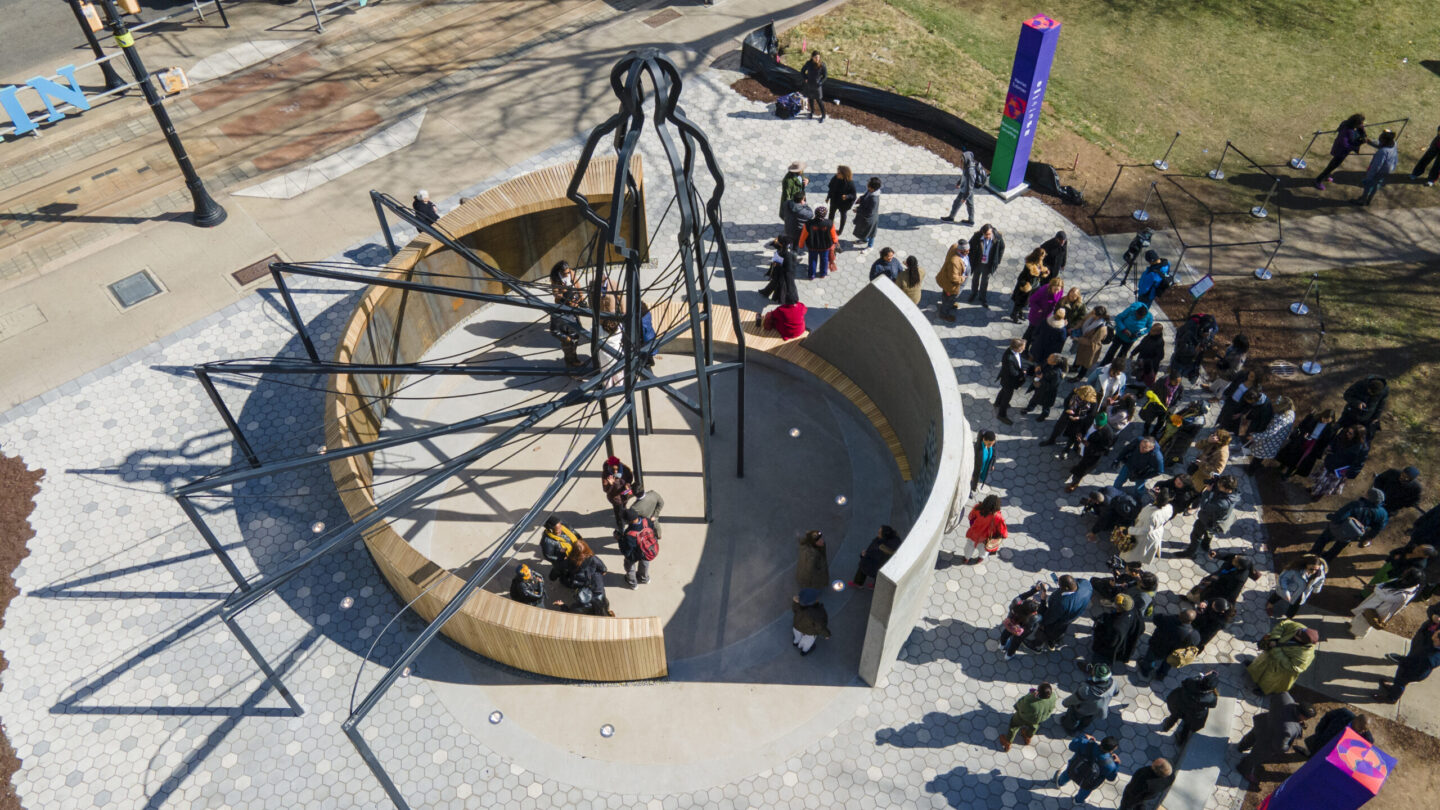A new monument honoring abolitionist Harriet Tubman was unveiled in Newark, New Jersey, on Friday, replacing a long-standing statue of Christopher Columbus.
The monument — named “Shadow of a Face”— was unveiled Thursday in Newark’s newly renamed Harriet Tubman Square, paying homage to both Tubman’s and the city’s role in the Underground Railroad along with the Black Liberation Movement’s history in the area, Newark Mayor Ras J. Baraka said in a news release.
The title of the monument was inspired by Robert Hayden’s 1962 poem entitled “Runaway Runagate,” which references Tubman.
“In a time when so many cities are choosing to topple statues that limit the scope of their people’s story, we have chosen to erect a monument that spurs us into our future story of exemplary strength and solidity,” Baraka said in a statement.
“We have created a focal point in the heart of our city that expresses our participation in an ongoing living history of a people who have grappled through many conflicts to steadily lead our nation in its progress toward racial equality,” he added.
The 25-foot-tall monument includes a mosaic of tiles and a circular learning wall inscribed with stories of Tubman’s life and the history of Newark’s Black liberation movement. The portrait wall features an image of Tubman at its base while the mosaic features ceramic tiles commissioned by Newark residents, according to the news release.
Nina Cooke John, a New Jersey native and the monument’s designer, said the monument celebrates both the legacy of Tubman and the lives of current Newark residents — as it connects their stories to Tubman’s.
“Her heroism is recognized, and space is claimed for her story in this historic park, while her humanity is made accessible so that we can all be empowered by her deeds both great and small,” Cooke John said in a news release.
Born Araminta Ross, Tubman was born into slavery in Maryland around 1822. She later married John Tubman, a free Black man, around 1844 and changed her name from Araminta to Harriet. Tubman escaped slavery in 1849 and helped more than 300 others to freedom over the course of 10 years.
The Christopher Columbus statue that Tubman’s monument replaces was removed in June 2020 during the summer’s racial reckoning following the murder of George Floyd in Minneapolis. The City of Newark took down the Columbus statue to avoid people taking it upon themselves during protests, Baraka said in a June 2020 tweet.
The racial protests prompted for the removal or renaming of several controversial monuments and statues across the country.
Copyright 2023 NPR. To see more, visit https://www.npr.org.
9(MDAxODM0MDY4MDEyMTY4NDA3MzI3YjkzMw004))

9(MDAxODM0MDY4MDEyMTY4NDA3MzI3YjkzMw004))








